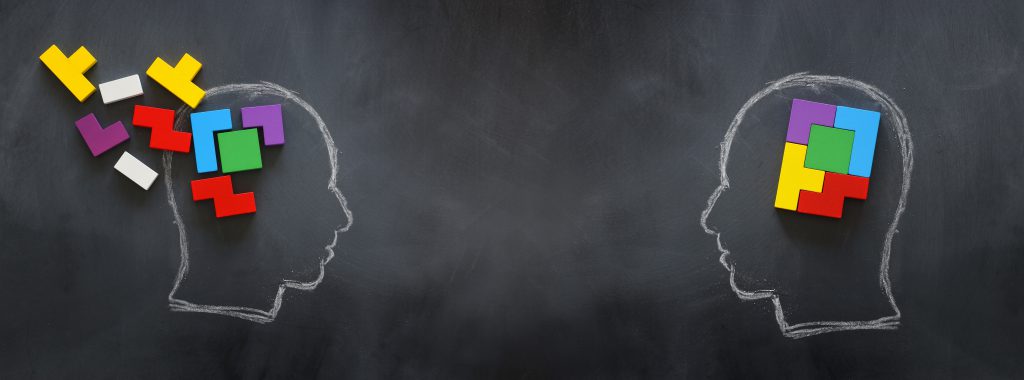Naperville Integrated Wellness
NAPERVILLE'S TOP RATED LOCAL® FUNCTIONAL MEDICINE FACILITY

Hashimoto’s Brain Damage: Keep Your Brain Health w/ Functional Medicine
Hashimoto’s disease is not only a thyroid disease. This autoimmune disease often affects your brain. Many individuals with this disease still suffer with brain-related symptoms even when their thyroid hormone levels are optimal. Your symptoms may not be related to your levels of thyroid hormone at all. In many instances, symptoms attributed to thyroid hormones are actually problems that originate in the brain.
Hashimoto’s disease is an autoimmune disorder that can cause severe and life-threatening health problems. It is a serious condition that can lead to numerous complications, including inflammation of the thyroid gland, which can interfere with the body’s ability to produce hormones. Left untreated, Hashimoto’s disease can cause hypothyroidism, or an underactive thyroid, which can cause fatigue, weight gain, depression, and difficulty concentrating.
It can also increase the risk of developing other conditions such as goiter, heart disease, and infertility. A person with Hashimoto’s disease will need regular monitoring and medical care. Treatment typically involves taking medications to manage symptoms and to help the body produce enough thyroid hormones. Learn more about our natural treatment for Hashimoto’s thyroiditis now.
Do you have Hashimoto’s Disease and Experience Any Of The Following?
These problems are “brain problems.” Even digestion problems can originate in the brain. The most important nerve for healthy digestion is the vagus nerve and it originates in your brain. We now know that Alzheimer’s, Parkinson’s and dementia rates are higher among people with Hashimoto’s. Hashimoto’s occurs because your immune system is diseased; your thyroid is an innocent target of the diseased immune system. The root cause is a poorly regulated immune system and the thyroid is the organ that is being attacked and destroyed. Functional medicine doctors know that Hashimoto’s not only affects the thyroid but is also affects the brain. Many people mistake their brain inflammation and brain damage with hypothyroidism or an imbalance of their thyroid hormones. If you have Hashimoto’s disease, getting your thyroid hormone levels optimized is not enough. You have an autoimmune disease and this disease can affect other parts of your body beyond the thyroid gland. therefore you must get your immune system working better, which means a better regulated immune system. You need to support and protect other systems like your digestive system and your nervous system. The more we learn about Hashimoto’s and other autoimmune diseases, the more we see the need to protect the rest of the body. With what was once considered only a “thyroid disease” we now see as an “immune system disease” and “neurological disease.” Thyroiditis is defined as inflammation of the thyroid gland. This can cause the thyroid gland to be painful and swollen for weeks, or in some cases, months. It can cause the thyroid to feel tender or painful to the touch. In some cases, one may have difficulty or pain when swallowing. Over time, if untreated, this can cause irreparable damage to the thyroid gland. The most common cause for thyroiditis is the autoimmune disease called Hashimoto’s. Another autoimmune thyroid condition is Grave’s disease but this will not be discussed further in this blog. Other causes of thyroiditis include infections such as mumps, infuenza, and other respiratory viruses. Learn more about our Hashimoto’s thyroiditis treatment now. Hashimoto’s thyroiditis is an autoimmune disorder in which the body’s immune system mistakenly attacks and destroys healthy thyroid tissue. Symptoms of Hashimoto’s thyroiditis can vary from person to person, but some of the most common symptoms include fatigue, weight gain, an enlarged thyroid (goiter), constipation, dry skin, depression, and feeling cold when others are not. Other symptoms may include joint pain, muscle weakness, and brittle nails. Some people may experience an irregular menstrual cycle or infertility due to the condition. Hashimoto’s thyroiditis can also cause changes in the voice, such as hoarseness, as well as swelling of the eyes and face, known as exophthalmos. Diagnosis is made with a combination of blood tests and expert knowledge. Thyroid hormones can be balanced and maintained with medication if needed. What we don’t have is a medication to replace a damaged brain. Hashimoto’s also increases your risk of developing other autoimmune diseases; many of which are significantly more devastating. Hashimoto’s strikes at all 3 of your major regulating systems. Your immune system, nervous system and endocrine system (hormones). Hashimoto’s encephalopathy is an uncommon autoimmune disorder of the brain that is most commonly seen in patients with Hashimoto’s thyroiditis. It can cause inflammation of the brain, leading to a wide range of neurological symptoms including seizures, confusion, headaches, and movement disorders. The exact cause of this disorder is unknown, but it is believed to be caused by antibodies attacking the brain and leading to inflammation. Treatment typically includes corticosteroids, intravenous immunoglobulins, and other medications to suppress the immune system and reduce inflammation. In some cases, surgery may be needed to reduce swelling in the brain. While rare, Hashimoto’s encephalopathy can have serious effects on a patient’s life, if not controlled/monitored. If you have Hashimoto’s disease or any autoimmune disease, it is in your best interest to care for your body as the whole. There are medications that can treat inflammation of the thyroid. The drug prescribed will depend on the cause of the inflammation. In some cases, nonsteroidal anti-inflammatory drugs and corticosteroids are indicated. Another main treatment for Hashimoto’s is hormone replacement for what is no longer being made by the damaged thyroid gland. Although the treatment drugs are often necessary and effective to treat the symptoms, they do not identify or treat the cause of the condition. Functional medicine has a different approach to treatment. As functional medicine doctors, we look to identify and address the root cause of the problem. Hashimoto’s Thyroiditis is a result of a dysregulated immune system, one in which the immune cells are attacking healthy organs. We address the immune system by identifying and treating the causes of inflammation to prevent further damage to the thyroid gland. Schedule The aim of functional medicine encompasses: comprehending the body’s functions, discerning where and how to probe health concerns, recognizing pertinent indicators, grasping the implications of discoveries, and formulating strategies to rectify the underlying causes of health issues. Wishing you abundant health, joy, and an elevated standard of living! For further details on functional medicine, integrative medicine, Dr. Sharon Borkowski or Dr. Sexton, visit napervilleintegratedwellness.com. Engage in independent research, empower yourself with knowledge, and pose numerous inquiries. Remember to critically evaluate the sources of information you encounter. In today’s healthcare domain, misinformation, outdated data, profit-driven agendas, and biases can permeate even from ostensibly reputable entities and organizations. This healthcare approach is not designed to diagnose, treat, cure, alleviate, or prevent any illnesses. The article serves informational purposes only and should not replace professional healthcare services. Please reach out to our office for further information.
Hashimoto’s is NOT just a thyroid disease
 As a functional medicine doctor, I understand and appreciate the how different body systems can influence each other. With Hashimoto’s, there are several systems that can be affected. These systems include the immune system (autoimmunity), the hormone/endocrine system (thyroid gland) and the nervous system (brain). Traditional medicine only recognizes the thyroid, so the only solution provided is thyroid hormone medication. The immune system is completely ignored. If the brain is considered at all, the damage that is occurring will not be recognized or addressed but psychiatric drugs may be offered.
As a functional medicine doctor, I understand and appreciate the how different body systems can influence each other. With Hashimoto’s, there are several systems that can be affected. These systems include the immune system (autoimmunity), the hormone/endocrine system (thyroid gland) and the nervous system (brain). Traditional medicine only recognizes the thyroid, so the only solution provided is thyroid hormone medication. The immune system is completely ignored. If the brain is considered at all, the damage that is occurring will not be recognized or addressed but psychiatric drugs may be offered. 
The inflammation that occurs with Hashimoto’s Disease can cause the following brain problems:
What is Hashimoto’s Thyroiditis?
Hashimoto’s Thyroiditis Symptoms
Hashimoto’s Thyroiditis Treatment
Not to make less of the thyroid damage, but it just might turn out that the thyroid is the least of our concerns with Hashimoto’s.
Hashimoto’s Encephalopathy
New Treatments for Hashimoto’s Thyroiditis
